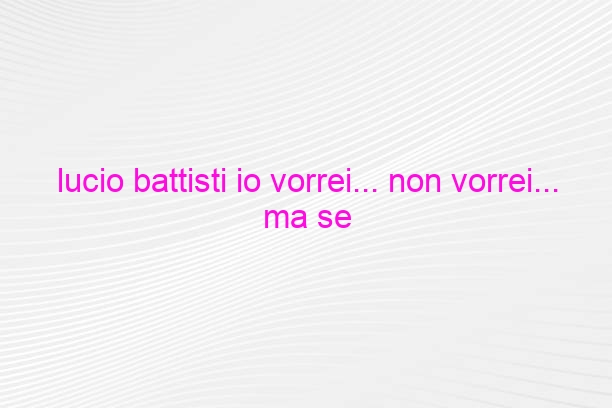Lucio Battisti’s song "Io Vorrei… Non Vorrei… Ma Se Vuoi" is an iconic Italian song that has become a classic in the Italian music world. It was released in 1969 and has been widely covered by other artists since its release. The song is a classic love song, with a unique and captivating melody. The lyrics of the song are both poetic and meaningful, and they explore the complex emotions of love. In this article, we’ll explore the song’s history, uncover the meaning of its lyrics, and discuss why it has remained a classic for over 50 years.
Exploring the Iconic Italian Song
Lucio Battisti’s "Io Vorrei… Non Vorrei… Ma Se Vuoi" is a classic Italian song that was released in 1969. The song was written by Battisti and his long-time collaborator, lyricist Mogol. It was released as part of Battisti’s album, "Umanamente Uomo: Il Sogno", and it was an instant success. The song has since been covered by numerous other artists, including Bruno Lauzi, Mina, and Sergio Endrigo.
The song is a classic love song, with a unique and captivating melody. The melody is based on a traditional Italian folk tune, and it has been praised for its emotional depth and beauty. The lyrics of the song are both poetic and meaningful, and they explore the complex emotions of love.
Uncovering the Meaning of "Io Vorrei… Non Vorrei… Ma Se Vuoi"
The lyrics of "Io Vorrei… Non Vorrei… Ma Se Vuoi" explore the complex emotions of love. The song tells the story of a person who is in love, but is hesitant to admit it. The person expresses both their desire to love and their fear of being hurt. The chorus of the song translates to "I’d like to, I wouldn’t like to, but if you want me to." This line captures the conflicting emotions of the narrator perfectly.
The song also touches on themes of vulnerability and acceptance. The narrator is hesitant to admit their feelings, but they eventually come to terms with their vulnerability and accept the love they feel. The lyrics capture this emotion perfectly, and they are both poetic and meaningful.
Lucio Battisti’s "Io Vorrei… Non Vorrei… Ma Se Vuoi" is an iconic


